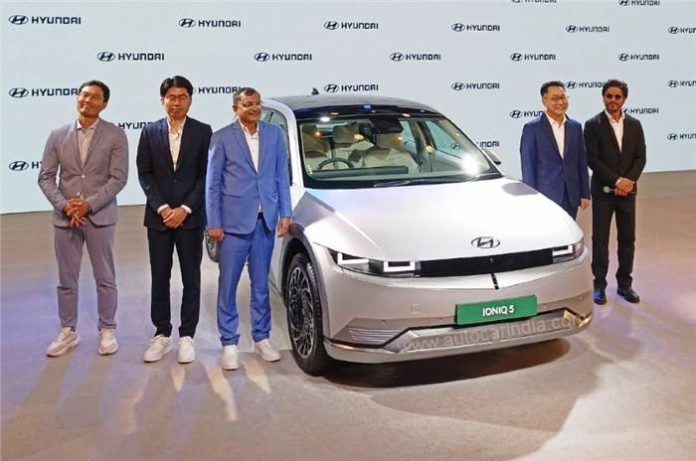Hyundai Motor India Ltd has been one of the most trusted brands in the country. To endure that trust, they have planned to increase the market spectrum by making their debut in the EV industry as well. Hyundai Motor India Ltd is planning to launch four electric vehicle models shortly, including Creta EV, in the last quarter of the current fiscal, as per the company’s IPO filled with the Securities and Exchange Board of India aka SEBI. Also, they are exploring a way to maximise the price competitiveness of their EV models.
Hyundai Motor India Ltd (HMIL) mentioned in the draft red herring prospectus that it aims to verify its EV strategy and plan EV timelines in line with market demands in India by releasing the appropriate EV models with each price segment. So that the market size could get elongated.
The company said that they are following a transition strategy, having started with the launch of high-end premium EVs and planning to transition towards the mass markets as the EV market and ecosystem scale up in India. They are aiming to launch four EV models in future, including Creta EV in the last quarter of fiscal 2025.
Moreover, HMIL has rented a section of the Chennai Manufacturing Plant to Mobis, a Hyundai Motor Company (HMC) group firm, to carry out the assembly of EV batteries, which will be supplied to the company, resulting in the reduction of import costs for battery packs, it added.
Throughout the session, the company stressed the domestic production of the EV battery through the virtue of collaboration with both local and global EV power electronic vendors. HMC also emphasised their strategic partnership with Exide Energy Solutions Ltd to facilitate localised battery production and supply in India.
Currently, HMIL offers two electric vehicle models in India: the IONIQ5 and the Kona Electric, priced approximately at Rs 45 lakh and Rs 24 lakh, respectively.
HMIL said that the company was also exploring different paths for strategic collaboration in the production of batteries. They believed the addition of domestically sourced EV models would aid in donating to diversify their passenger vehicle offering and later expand their market coverage.
Further, in the near term, the company envisions increasing localisation to secure production-linked incentive (PLI) subsidies and transition to a dedicated EV platform to vary costs, it added.








